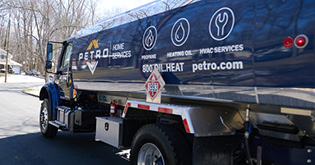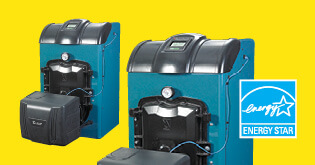- My Account:
- Sign In
- Register
- Make Payment

Should I buy a standby generator for my home?
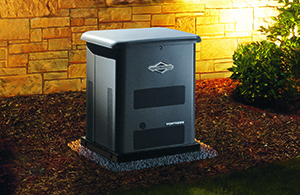
A generator can make a huge difference in whether you and your family can make it through a blackout in relative comfort. In some cases, a generator can even save money and prevent extensive damage to your home. If you live in an area that experiences frequent power outages, purchasing a generator for home use may be the right decision for you.
Should I Choose Permanent or Portable?
There are a number of factors to consider when deciding between the two types of generators used for backup power at home: the standby (or whole house generator) and the portable generator.
A standby generator is permanently installed outside your home, and usually runs on propane or natural gas. When you lose power, the generator turns on automatically and within seconds begins supplying electricity to your home. The cost of a standby generator can be significant. But many homeowners, especially those living in hurricane or flood-prone areas, find that it is a worthwhile investment.
Portable generators are usually run on gasoline or diesel, though natural gas and propane models are also available. Because of its mobility and lower cost, a portable generator is a great option if you need only limited and occasional backup power. But there are a few safety issues that you need to consider, which we’ll share later in this article.
Ultimately, your decision will most likely be based on:
- Your geographical location
- The size of your home
- The number and type of appliances and equipment that require power
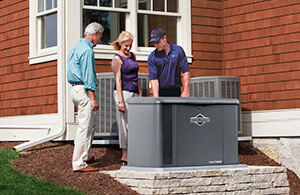
Standby Generator installation.
Because installation involves permits, knowledge of building codes, and expert skill in electrical and plumbing work (as well as gas line work, if your power source is natural gas), homeowners should have this work handled professionally.
Standby Generator benefits.
Powering the appliances you depend on.
Besides keeping the lights on, one of the major reasons for having a standby generator is having the ability to power essential items such as your refrigerator, cooking appliances, furnace, medical devices, and necessary business equipment. With this supply of emergency energy, you prevent having to throw out hundreds of dollars in spoiled food, while keeping your home warm and comfortable.
Prevent frozen pipes and basement flooding.
A standby generator can help prevent major damage to your home. Below-freezing weather and prolonged loss of power can lead to frozen pipes. The damage from a burst pipe can cause thousands, or tens of thousands, of dollars to repair. For homes that are at risk for flooding, a generator will also supply power to your sump pump.
Adds value to your home.
Owning a permanent standby generator can be seen as a major plus, especially if you are in an area that experiences extreme weather conditions such as hurricanes, flooding, and tornadoes.
Peace of mind for your loved ones.
The loss of power is not only an inconvenience, it can cause undue stress to your loved ones. It is comforting and safe to have the lights and heat on, as well as the ability to use your favorite entertainment devices or keep any medical devices that require power on during a major storm.
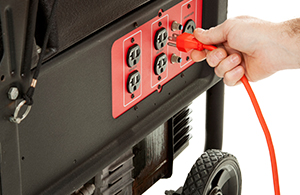
Portable Generator benefits and how they work.
The price of a portable generator is substantially less than that of a standby generator, and its size allows you to take it wherever you need it —emergency backup at home, on camping trips, and so on.
With the addition of a properly installed generator transfer switch, a portable generator can be used to supply power safely to a select number of items in your home.
(Powering your home without a transfer switch is not recommended. And, never plug your generator directly into the wall outlet (known as backfeeding). This sends power beyond the house, which can either kill or injure utility workers and others served by the same utility transformer.)
There are other safety considerations to be aware of. A portable generator must remain outside in a dry area, but never in your home or any enclosed or partially enclosed spaces such as your basement, garage, or crawl space. This is due to the carbon monoxide (CO) that is emitted while the machine is running, as well as the risk of electrocution and fire.
Overall, a portable generator is a good, backup solution for people that only lose power on rare occasions.
Conclusion.
As you think about your power needs, and the amount of times you lose power in any given year, consider talking with a professional to help you decide whether a standby or portable generator is right for your home.
Petro Home Services is proud to not only serve communities in DC, CT, MA, MD, NJ, NY, PA, and RI but we also proudly acknowledge the skills and experience of our expert team behind all resources. With insights on topics ranging from heating oil facts to common air conditioning questions, you can rely on Petro Home Services for facts and information to help you understand more about your heating, cooling and home comfort needs. This article and all articles on the Petro Home Services website have been approved by our team of home service experts.

